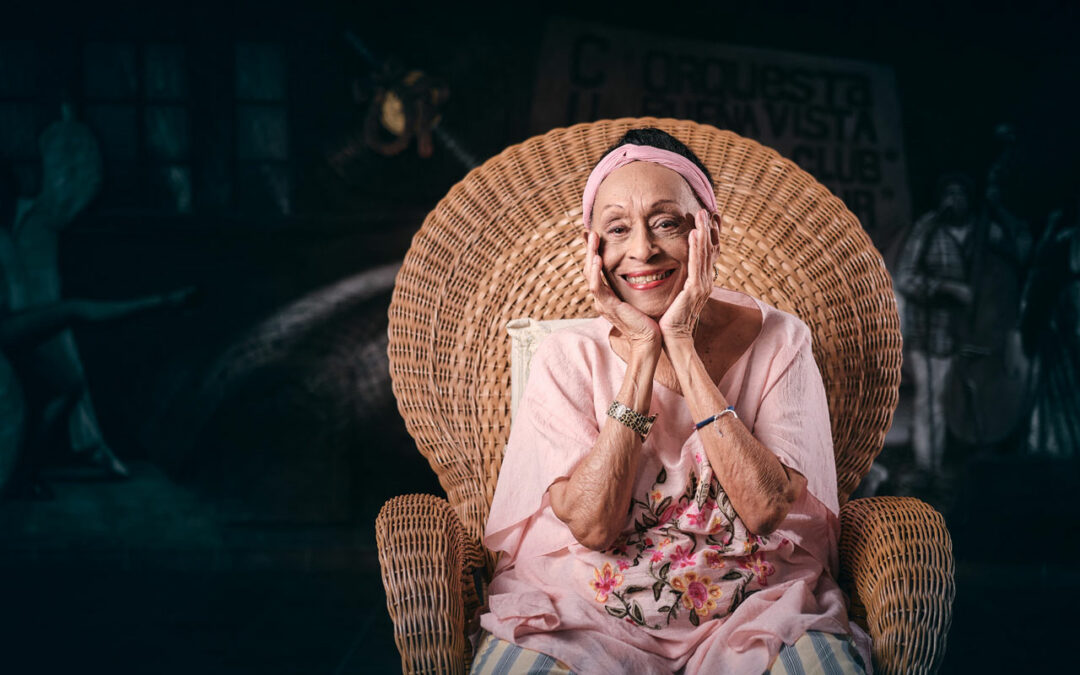Omara Portuondo photo courtesy of the artist
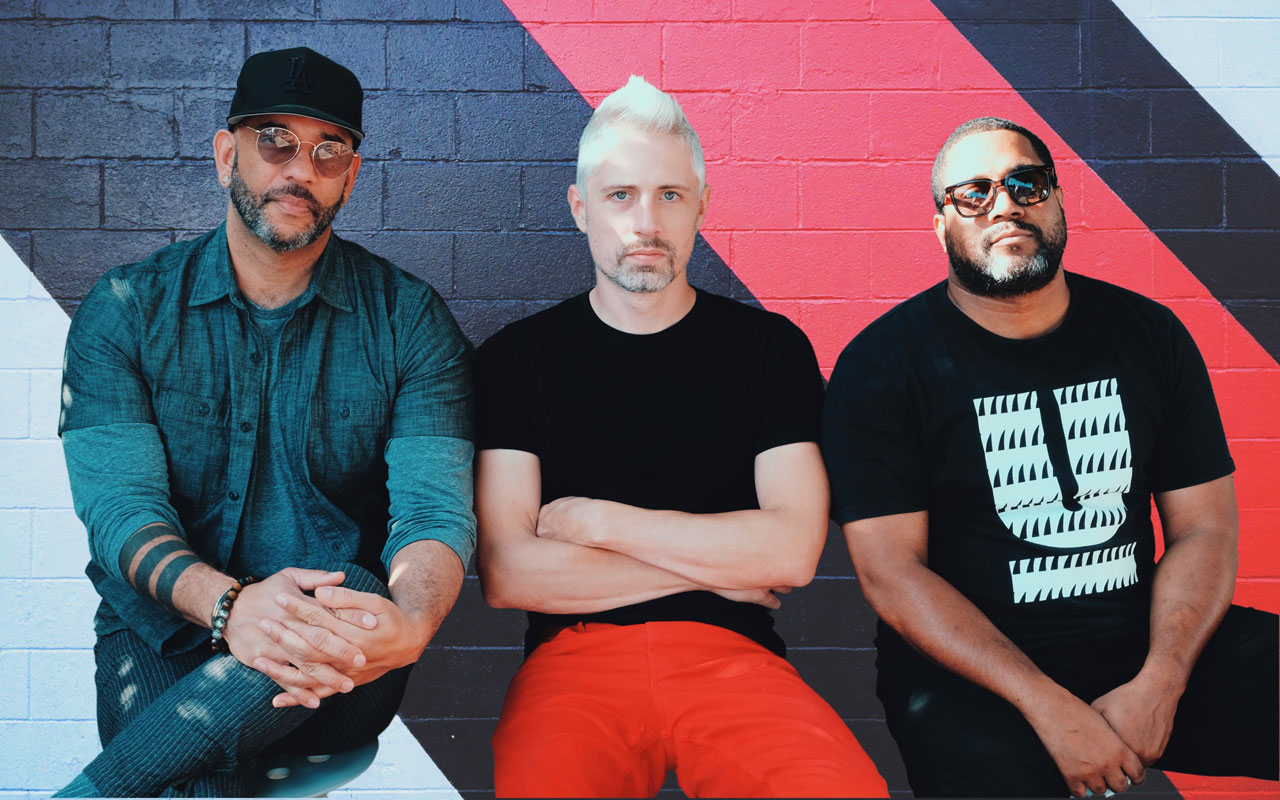
MONDAY, OCTOBER 23, 7:30PM PDT LANGSTON HUGHES PERFORMING ARTS INSTITUTE
John Escreet’s “Seismic Shift” w/ Eric Revis & Damion Reid
Co-presented with LANGSTON. Sponsored by Seed IP. Welcomed by 91.3 KBCS. $12-38
BY PAUL RAUCH
Los Angeles-based pianist John Escreet has garnered a reputation for musical diversity over the past fifteen years. His music tends to find middle ground between jazz and what critics may refer to as improvised music. In the end, he is a jazz musician with intent to view the jazz tradition through the lens of future impetus. His recent associations with modern jazz heavyweights Antonio Sánchez and Evan Parker speaks to his modernist leanings.
For his appearance at the 2023 Earshot Jazz Festival, Escreet celebrates his latest release, Seismic Shift (Whirlwind, 2022), leading a trio with bassist Eric Revis and drummer Damion Reid. Escreet has great imagination, and, more importantly, keen awareness of the moment—two keys for transforming his sparse compositions into vivid musical sculpture. The pianist’s first foray into the trio format has served as an explosive, explorative canvas for the variant currents of sound and influence that comprise his sound.
Bassist Revis has traveled a more traditional, modern jazz path to arrive at the farthest reaches of the music. His efforts as a leader, like those of Escreet’s, include a large embrace into the avant-garde, or freer expressive approaches to jazz. His quarter century as the grounding force of the eclectic Branford Marsalis Quartet in itself is a source of perhaps the entirety of the jazz tradition. It enables him to stir a dynamic conversation with a clear voice while taking a leap into the unknown.
Drummer Reid’s voice echoes the wide-ranging style of his mentor, the great Billy Higgins. His musical travels have included performance and recording dates with Billy Childs, Robert Glasper, Ravi Coltrane, Marquis Hill, and Steve Lehman among many others. The diversity of his experience has enabled a style that incorporates traditional jazz drumming with a celebratory modernist feel.
The piano trio lineage in jazz is a story of freedom. It is a tale of masterful spontaneous composition. Like verbal communication, it is more about listening than it is about speaking. With that principle in mind, that which is spoken, is steeped in wisdom. This may be the perfect trio to research that conception in depth.
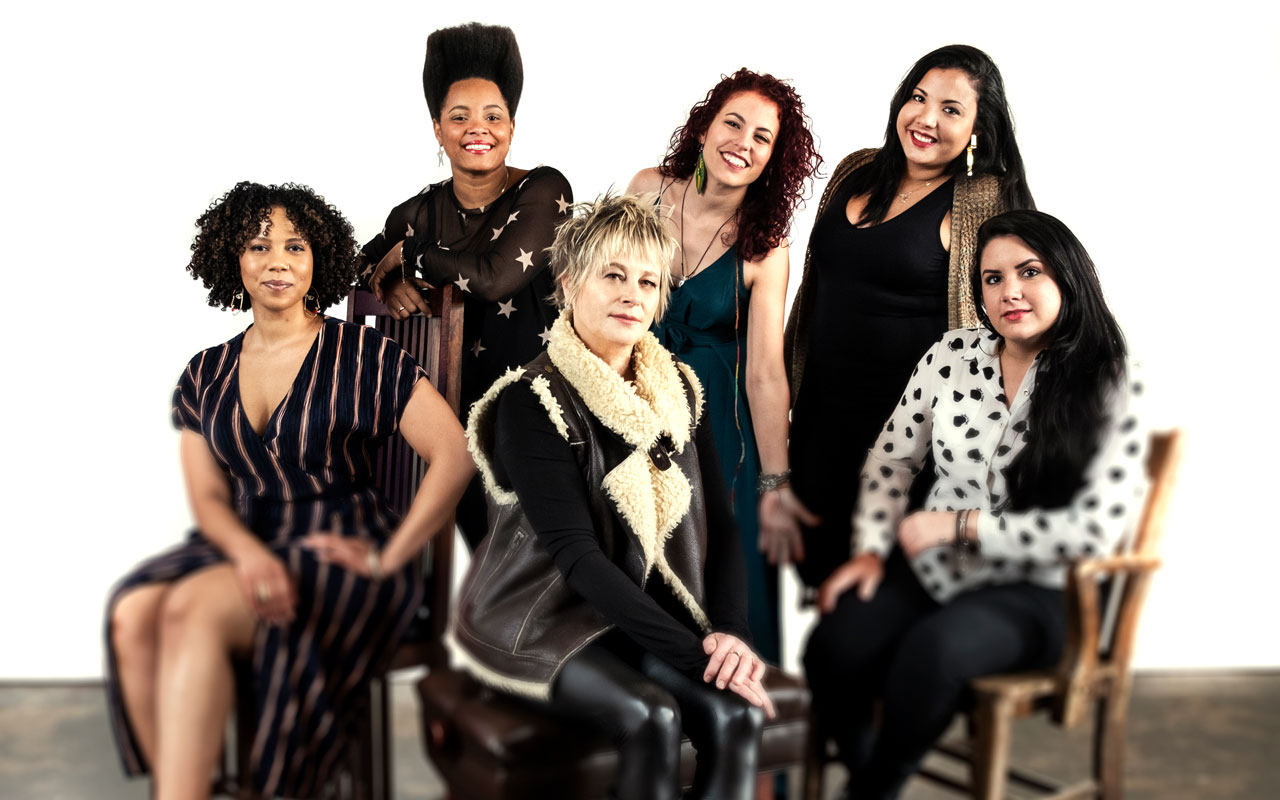
TUESDAY OCTOBER 24, 7:30PM PDT LANGSTON HUGHES PERFORMING ARTS INSTITUTE
Jane Bunnett & Maqueque
Co-presented with LANGSTON. Welccomed by KNKX. $12-38
BY JONATHAN SHIPLEY
She’s in a cabin built by her ancestors decades ago in the cold, north of Toronto. There’s the lake nearby, and the dark pines, and the quiet solitude. It’s not the place you’d expect to find one of the players of Cuban jazz, but inspiration can strike anyone anywhere.
Jane Bunnett, a Toronto native, and thrice-nominated musician, first visited Cuba in the early 1980s. “From the moment I got out of the airport there was an abundance of music,” she said. “There were drummers, and singers, and trumpets, and cowbell. Duets, trios, quartets everywhere. It was unbelievable.”
It all spoke to her. “It was bright and beautiful. It was overwhelming.”
Ever since, Bunnett has immersed herself in Cuban music. So much so, she formed Maqueque, an all-female Cuban band. Formed to record and mentor young Cuban female musicians, they’ve become one of the top groups on the North American jazz scene. They won a Juno Award – the Canadian Grammy Awards – for their first album, Jane Bunnett and Maqueque (2014, Justin Time Records). They’ve also been nominated for a Grammy Award with their second release, Odarra (2016, Linus Entertainment) and were again nominated for a Juno Award for their third release, On Firm Ground/Tierra Firme (2019, Linus Entertainment).
Maqueque are: Jane Bunnett, soprano saxophone & flute; Joanna Tendai Majoko, vocals; MaryPaz Fernández, congas & vocals; Dánae Olano, piano; Tailin Marrero Zamora, acoustic & electric bass; and Yissy García, drums.
The band was recently voted as one of the top ten jazz groups by DownBeat magazine’s Critics Poll.
“Jazz allows you to be yourself,” Bunnett said from her cabin. “It’s an open space to be creative; to build on an existing genre and push it forward, adding color.”
Bunnett, who plays saxophone, flute, and piano, has added color to the genre with her effervescent music. She wants listeners to tap their toes; put a smile on their face; better yet, stand up and start dancing—feel joy in the music. “It’s special every time we play,” Bunnett said. “We hope we emanate that great feeling.”
It’s like she wants audiences to feel like she did that first time she skipped out onto the streets of Cuba—bright and beautiful.
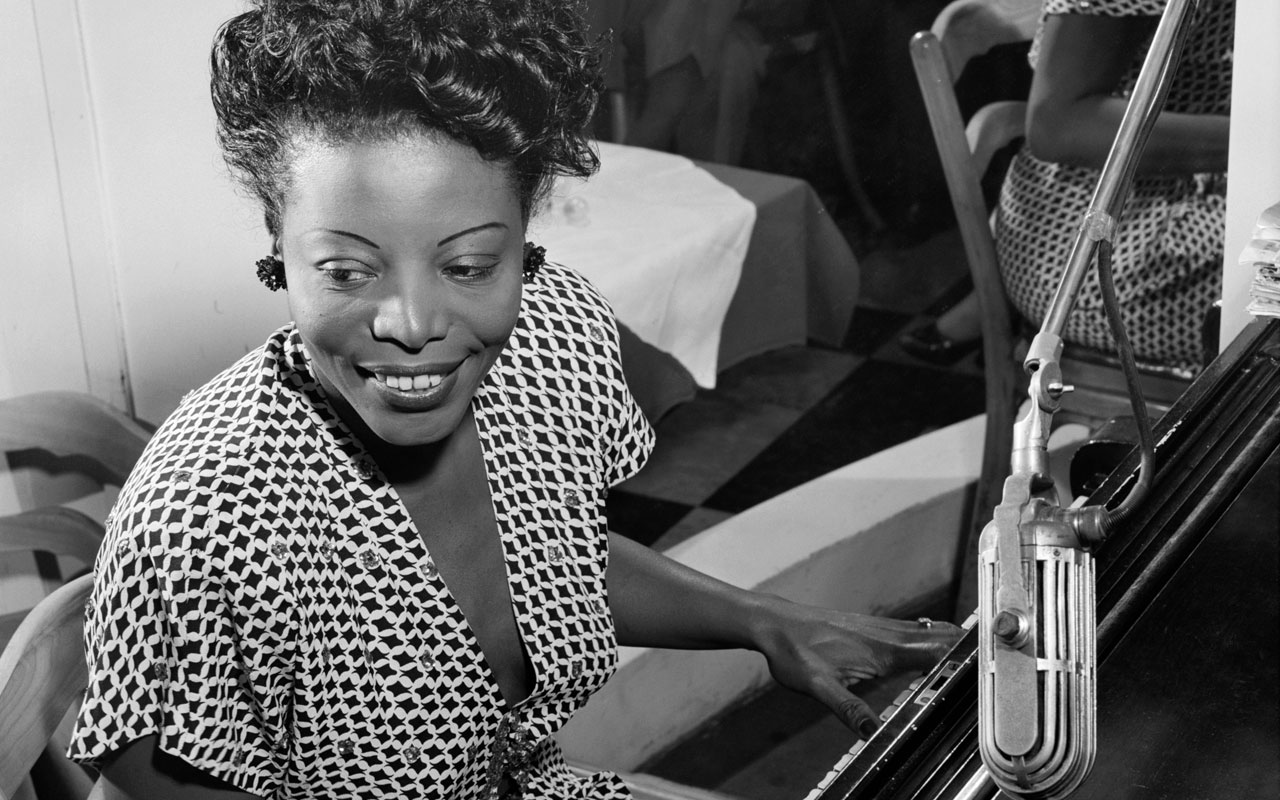
WEDNESDAY, OCTOBER 25, 7:30PM PDT LANGSTON HUGHES PERFORMING ARTS INSTITUTE
Celebrating Mary Lou Williams: An Evening of Live Performance & Film
Co-presented with LANGSTON. Welccomed by KNKX. $12-38
BY NADYA BARGHOUTY
Seattle pianist and composer Ann Reynolds is continually inspired by great women in jazz. In 2021, her album Inspired by Women Composers won the Earshot Golden Ear Award for Best NW Jazz Recording and features an original song inspired by Mary Lou Williams.
Pianist, composer, and arranger Mary Lou Williams was active in the jazz community for over 50 years. Often dubbed as the “First Lady of Jazz,” Williams wrote over 300 compositions throughout her music career. She is most known for her contributions to the swing and bebop subgenres. Williams’ unique style attracted the eyes of top bandleaders of her time. Big names like Benny Goodman and Louis Armstrong requested Williams to arrange songs for them. A major turning point in her career occurred in 1946 when the New York Philharmonic Orchestra performed her composition “Zodiac Suite.” Williams used her talents to mentor several up-and-coming musicians of the time like Dizzy Gillespie, Bud Powell, and Thelonious Monk.
Beyond playing music, Williams was also a pioneer in music production and publishing. As a Black woman in the music industry, Williams faced difficulties getting her music to the masses. She is famously quoted saying, “No one would record me. So I decided to record myself.” Mary Records was established in 1964 and created an avenue for Williams to record herself. She then established her own publishing company Cecilia Music Co.
Reynolds, along with film producer and director Kay D. Ray, invites you to a curated night of celebration. Fans of Williams can expect to hear renditions of classics such as “Froggy Bottom,” “Scratchin’ in the Gravel,” and “Credo.” Through tribute musical performances and rare archival film footage, the audience will be fully immersed in Williams’ life’s work. Ray is known for other notable jazz film works like Lady Be Good: Instrumental Women in Jazz, In Her Hands: Key Changes in Jazz, and Ernestine Anderson: There Will Never Be Another You. The musical performances will feature several talented musicians: pianists Ann Reynolds, Alex Guilbert, Nelda Swiggett, and Kent Stevenson; bassists Terry Morgan and Heather Chriscaden; Maria Wulf and Steven Banks on drums; Freddy “Fuego” Gonzalez (flute/trombone); and Reggie Garrett (vocals).
Catch this same performance again on Bainbridge Island, November 1, as part of the BIMA Within Earshot series. These performances are sponsored in part by smART Ventures through Seattle Office of Arts and Culture and 4Culture.
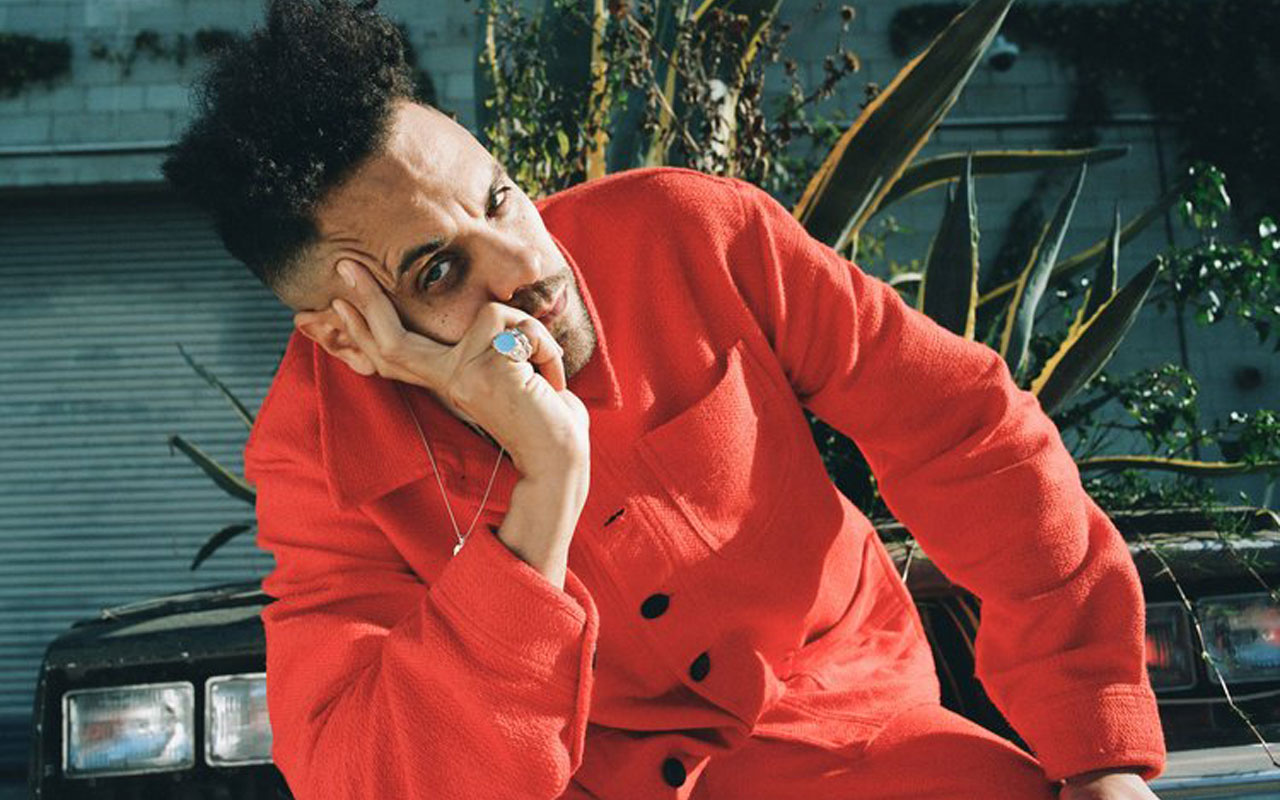
THURSDAY, OCTOBER 26, 7:30PM PDT LANGSTON HUGHES PERFORMING ARTS INSTITUTE
Kassa Overall
Co-presented with LANGSTON. Welcomed by KEXP. $12-38
BY CAITLIN CARTER
Grammy-nominated musician, emcee, singer, producer, and drummer Kassa Overall melds avant-garde experimentation with hip-hop production techniques to tilt the nexus of jazz and rap in unmapped directions. Fortunately for Seattle audiences, he points his compass to the Earshot stage this fall, touring in support of his latest venture, ANIMALS, released in May on Warp Records.
On ANIMALS, his third studio record, lyrical themes of mental health, survival, and the Black American experience swirl into a sonic kaleidoscope of jazz futurism and electro-hop. Throughout the album, Overall layers distorted vocals, propulsive 808, and spell-binding instrumentation to captivate listeners of every creed.
His “music is imaginative, expansive, and eclectic,” reviews PopMatters. “A deep appreciation of and skill with jazz and hip-hop are seamlessly woven together on an album that goes in multiple places with many different voices thrown into the mix.”
Those voices are a cast of top-flight jazz and hip-hop players including Seattle stalwart Shabazz Palaces, trumpeter Theo Croker, pianist Vijay Iyer, and saxophonist Tomoki Sanders. Sanders (the great Pharoah’s progeny) also joins Overall in tonight’s lineup, along with Bendji Allonce on percussion and Ian Finkelstein on keys—a configuration heard on ANIMALS track “Still Ain’t Find Me,” which PopMatters describes as “a wild and stirring piece, powered forward by percussionist Bendji Allonce and the piercing saxophone of Tomoki Sanders, proudly carrying on his late father’s legacy for the spiritual and avant-garde.”
Such collaborations have arisen through a career spanning both coasts. Reared in Seattle, Overall’s education took him from Garfield High School to Oberlin College in the Midwest, before making his way to New York, where he deepened his musicianship and developed a roster of legendary connections.
Overall has since returned to his native Seattle, sharing his unique sound with the community that raised him. In this, the first of two Earshot festival appearances, he invites audience members to join him as he questions humanity through his ANIMALS oeuvre: “We call ourselves humans, right? But we do animalistic shit towards each other. We justify immorality by almost stripping people of their humanity. He’s an animal, so we can treat him as such. All these different kinds of little questions in these songs point to questions about humanity: am I free? Or am I a circus animal? These questions intersect with the way I think about race.”
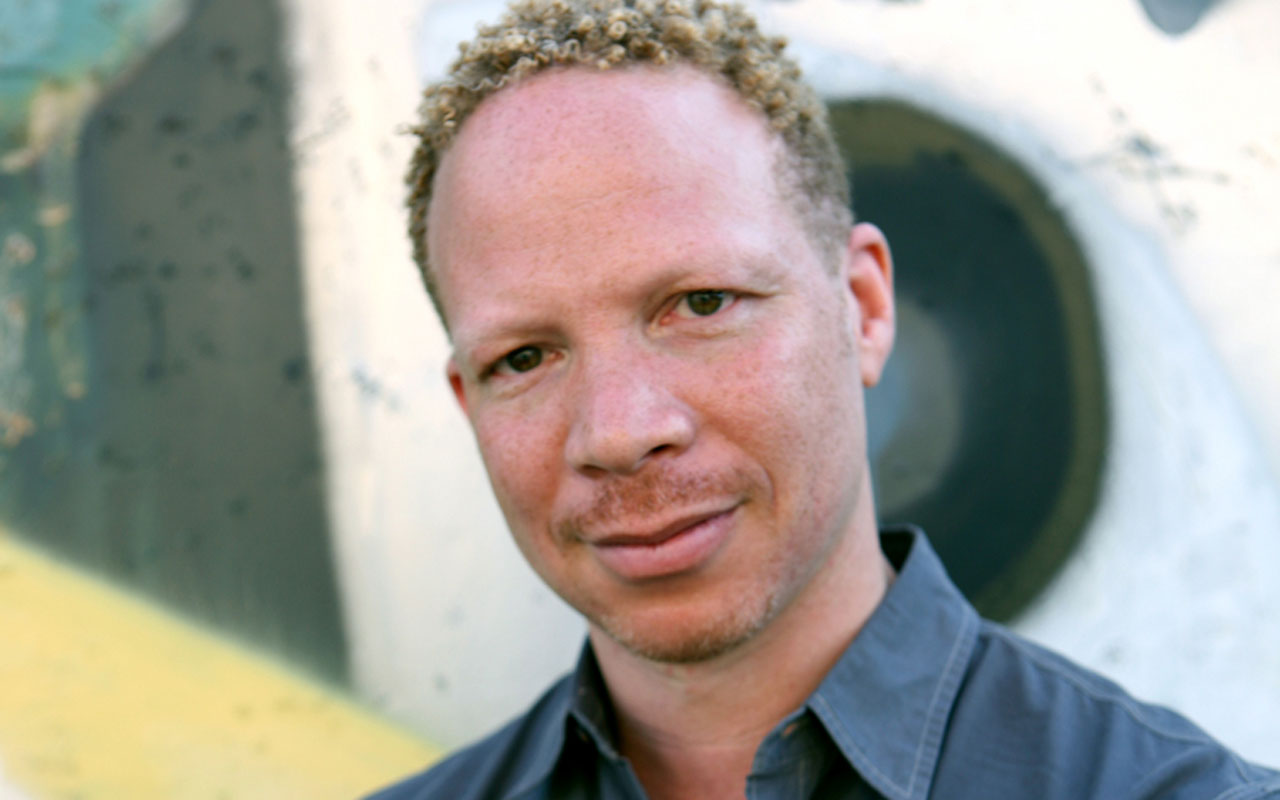
THURSDAY, OCTOBER 26, 8PM PDT CHAPEL PERFORMANCE SPACE
Craig Taborn
Sponsored by Richard Thurston. $12-30
BY ANDREW MEYER
Craig Taborn’s solo piano releases, Avenging Angel, 2011, and Shadow Plays, 2021, demonstrate a patience and willingness to follow musical ideas to their fullest completion, with each improvisation teasing out every last nuance. Nothing is wasted, yet nothing more is needed. Taborn frequently finds inspiration in repeated rhythmic figures, not dissimilar to those found in much minimalist piano music but here they take on a rhythmic intensity and vitality seldom heard in solo piano performance. His clever use of repetitive ostinato figures allows audiences firm ground from which to experience the rolling waves of shifting harmonic patterns sparkling over top of his music.
Originally from Minneapolis, Minnesota, Craig Taborn has become a stalwart of the New York creative and avant-garde jazz scenes for over twenty-five years. Taborn’s claims to be “not a classically trained pianist at all,” perhaps reflect his early interests in a variety of outsider musics. While in his teenage years, Taborn found himself drawn to the work of The Association for the Advancement of Creative Musicians (AACM), Sun Ra, heavy metal, and contemporary classical music and spent considerable time parsing out the works of Cecil Taylor. Taborn later went on to study English Literature at the University of Michigan where he quickly found like-minded students and established the electronic music group, the Tracey Science Quartet. During this time, he also studied with and worked alongside saxophonist James Carter.
Following his studies in Michigan and extensive touring with James Carter, Taborn moved to New York, where he quickly made a name for himself as one of the most in-demand keyboardists of the downtown scene. During this time, Taborn recorded with the likes of Dave Douglas, Tim Berne, Steve Coleman, Wadada Leo Smith, and Drew Gress. In 2001, he also gave his first solo piano performance, a practice which would grow to become a signature voice. Starting in 2005, Taborn recorded and toured extensively in North America and Europe with Chris Potter’s Underground band. This group, which did not feature a bass player relied heavily on Taborn’s ability to fill large portions of the sonic spectrum, a role that Taborn played frequently throughout the mid-2000s in multiple different contexts and no doubt an important aspect of his many solo performances.
Taborn is known to be highly selective of the recordings he is willing to release, bemoaning the “age of almost profligate documentation” in which artists work in modern times. In this light, audiences of Taborn’s solo performances can delight in the rarity and somewhat singular opportunity of hearing these long-form improvisations. Audiences can expect to hear small, often modular ideas be developed, reflected, and reworked in real time as Taborn creates music that embodies both space and time while reflecting a deep sense of almost meditative patience.
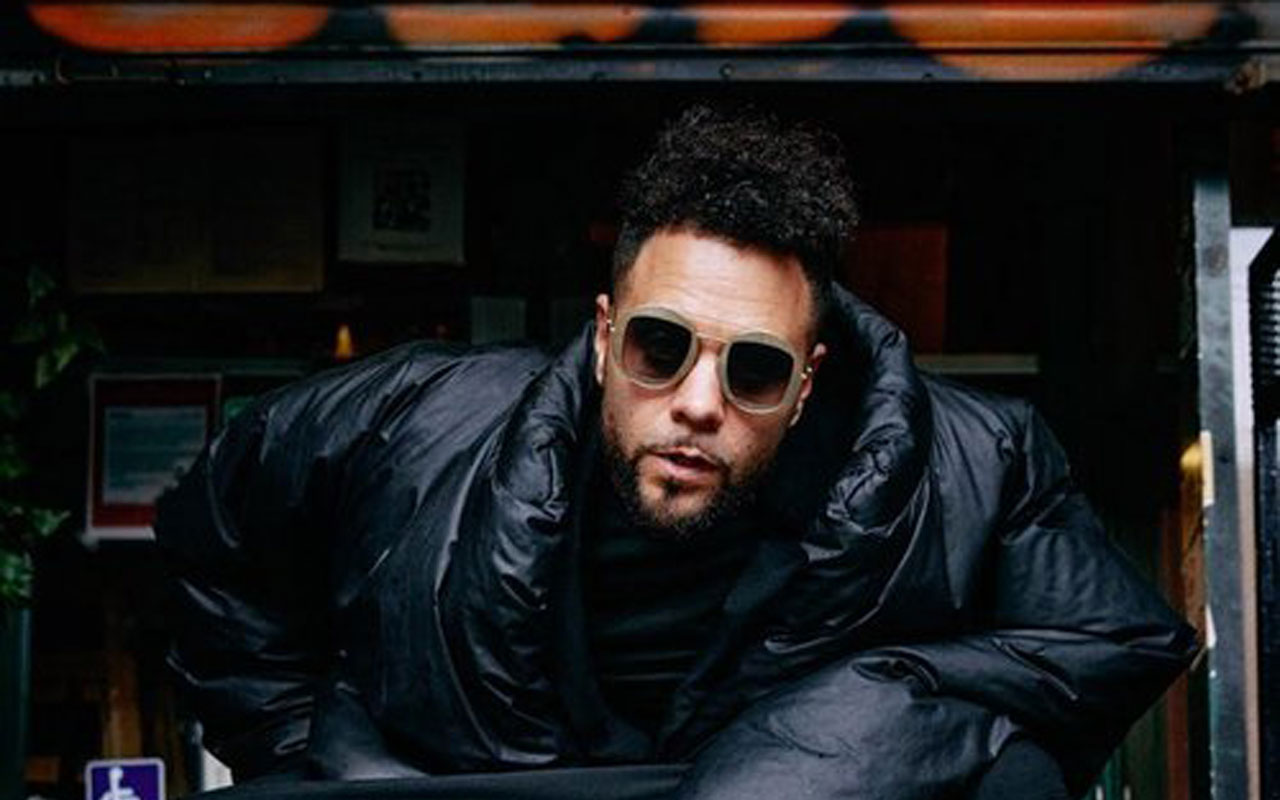
FRIDAY, OCTOBER 27, 7:30PM PDT THE ROYAL ROOM
Kassa Overall DJ Set/Phinehas Nyang’Oro
Co-presented with LANGSTON. Welcomed by Rainier Avenue Radio. $12-30
BY CAITLIN CARTER
As in his Shades of Flu series, this rare solo DJ set mixes vocals, power-drumming, and laptop fireworks with avant-garde experimentation, showing why Kassa Overall’s deep Seattle jazz roots make him a go-to player in the hip-hop world. Opening, singular, hard-swinging jazz vocalist, Phinehas Nyang’Oro’s, cracks open the evening in style.
Reared in Seattle, Kassa Overall grew up in a musical household, surrounded by instruments including a drum set, piano, saxophones, and even an early beat machine that he remembers playing with from an early age. “I almost took it for granted,” he recalls. “I thought that’s just how people grew up. Some kids had Legos, we had drum sets.” Between lessons, gigs, and finding inspiration in his parents’ extensive vinyl collection, which included old jazz and world music records, Overall’s musical identity began to take shape.
After graduating from Garfield High School, Overall attended Oberlin College, where he studied drums with NEA Jazz Master Billy Hart. There, he became more immersed in the jazz scene, but would make beats and raps in his dorm room on the side. Those worlds expanded as he made his way to New York, where he deepened his musicianship in each genre and developed a roster of legendary connections. Overall has since returned to his native Seattle, sharing his unique sound with the community that raised him.
Hailing from North Carolina as the child of Tanzanian parents, Phinehas Nyang’Oro is a vocalist and guitarist well-versed in American music and African tradition. While growing up in Durham, Nyang’Oro performed with jazz professors from area colleges in local churches, restaurants and bars, before studying in Paris at the American School of Modern Music after high school. Now in Cornish’s esteemed vocal jazz program, Nyang’Oro regularly performs around Seattle.
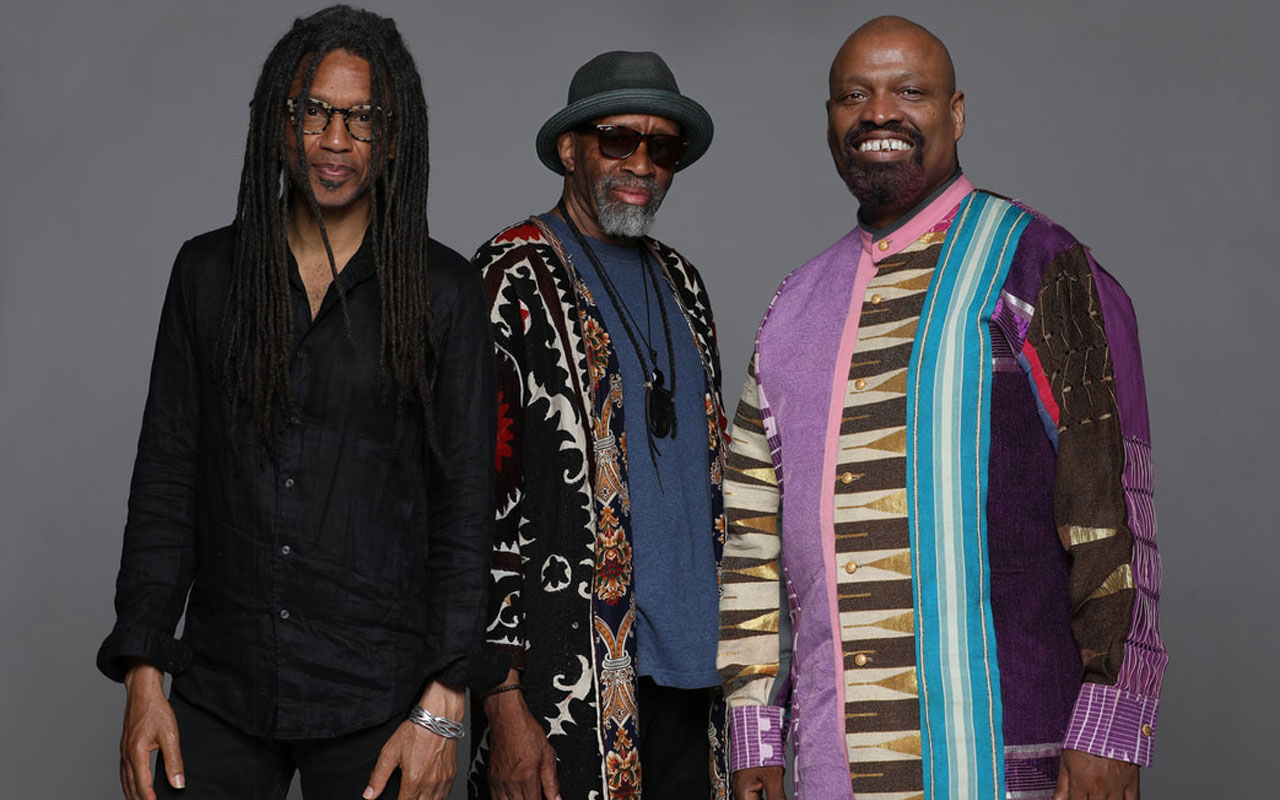
FRIDAY, OCTOBER 27, 8PM PDT LANGSTON HUGHES PERFORMING ARTS INSTITUTE
Harriet Tubman
Co-presented with LANGSTON. Sponsored by BIMA. Welcomed by Rainier Avenue Radio. $12-38
BY NATHAN BLUFORD
Harriet Tubman, the great liberator, guided enslaved Black Americans to freedom along the Underground Railroad in the 1850s. Harriet Tubman, the band, was formed in 1998 by guitarist and vocalist Brandon Ross, bassist Melvin Gibbs, and drummer JT Lewis to “communicate a vision of musical freedom and musical invention.” The power trio’s musical philosophy celebrates the African American cultural tradition of creatively adapting technology in pursuit of liberation.
Based in New York City since their inception, Harriet Tubman shreds through musical boundaries with a joyous intensity that honors their namesake. A single-track sample of Harriet Tubman’s 2018 release The Terror End of Beauty might indicate a funk, fusion, or jazz-rock band. Each successive track, however, reveals another layer of their fiery sound, which channels blues, drone, heavy metal and more by way of infectious grooves and expansive soundscapes.
Far more than the sum of its parts, Harriet Tubman’s sonic profile recalls storied alchemists like Sonny Sharrock, James “Blood” Ulmer, and Seattle’s own Jimi Hendrix. Just like these groundbreaking guitarists, Harriet Tubman’s piercing timbres and heavy rhythms pour volcanic electricity all over everything from Mississippi Delta blues to out-jazz odysseys. Disdainful of the limitations imposed by genre, the trio identifies their art as “Open Music.”
The three members’ respective histories are crowded with on-stage and studio performances alongside some of the biggest names in high-octane experimentation. Combined, their resumes highlight work with the likes of Archie Shepp, Ronald Shannon Jackson, Henry Rollins, George Clinton, and Living Colour.
Harriet Tubman’s dazzling shows don’t require any credentials, however. Their recent appearances in Seattle include a celebrated concert at the 2018 Earshot Jazz Festival (cited as the Number 1 best live concert in 2018 by NPR jazz critic, Nate Chinen) and a masterful performance live on KEXP that was hosted by KEXP DJ and Earshot’s own John Gilbreath in early 2020. Their powerful, crunchy sets are full of surprises (including the occasional banjo feature), so audiences should expect the unexpected when they take the stage at this year’s festival.
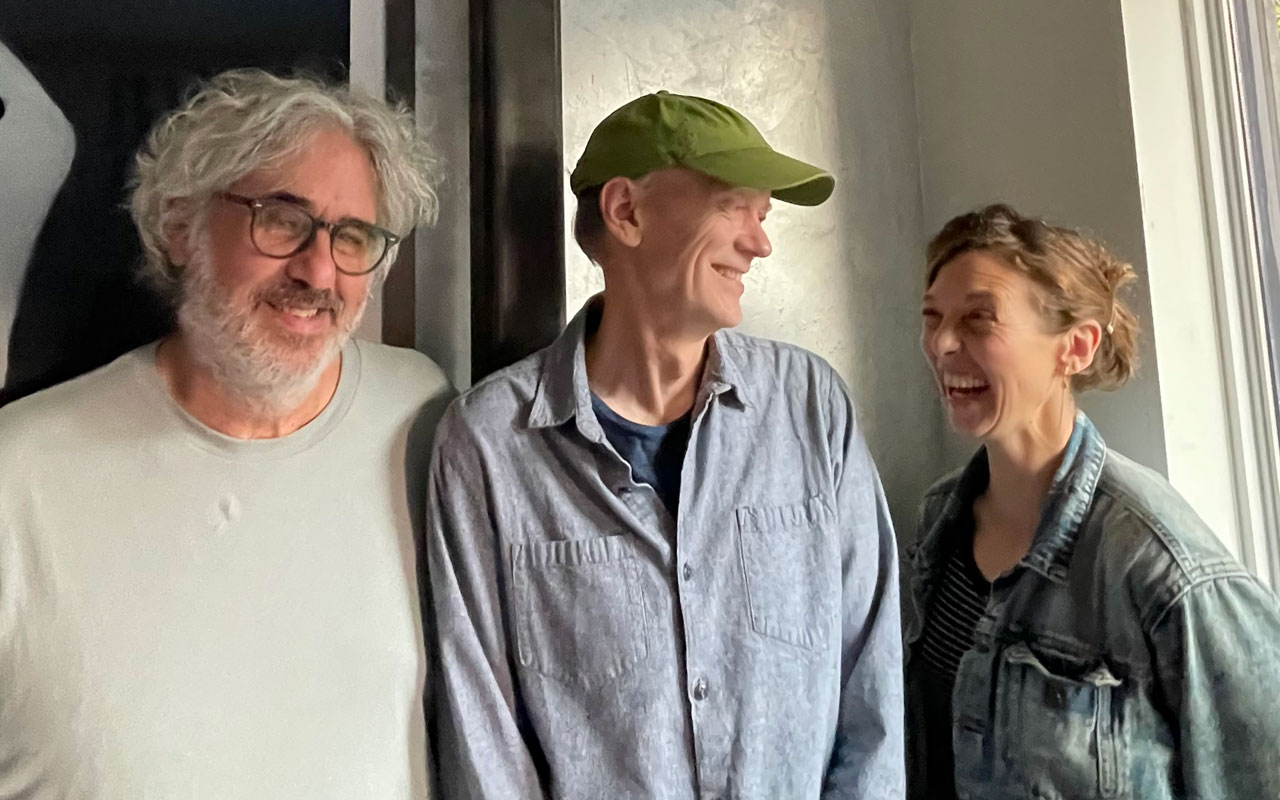
SATURDAY, OCTOBER 28, 7:30PM PDT CORNISH RAISBECK AUDITORIUM
Tim Berne’s Oceans And
$12-30
BY ANDREW MEYER
Alto saxophonist and composer, Tim Berne, returns to the Pacific Northwest with a fresh palate of sounds that many listeners familiar with his past work may find refreshingly distinct. While Berne’s colossal alto tone and intensely felt improvisations remain at the core of this work, the trio featured on his latest recording, Oceans And, consisting of accordionist, clarinetist, and vocalist Aurora Nealand, and cellist Hank Roberts push Berne into more horizontal and textural sonorities. Though Berne’s playing in this context is easily identifiable through his powerful, vocal sound as well as his sheer emotive power, the altoist has largely traded his frequent use of off-kilter nervous rhythmic energy for sustained and frequently pensive lines. Nealand’s clarinet and Roberts’ cello provide real-time improvised counterpoint with energy cresting and dissipating organically. Other times, Nealand’s pure vocal tone soars above scurrying dissonant clusters comprised of rapid, breathy alto figures tightly woven within deeply vocal cello lines. This ensemble brings a real diversity of tone and emotional depth to performance.
Although born in Syracuse, New York, saxophonist Tim Berne found his inspiration for a lifetime in music in the Northwest whilst attending Lewis and Clark College in Oregon. He was originally drawn to the power and soulfulness found in R&B records, as well as the music of Julius Hemphill. An important leader both musically and in terms of the music business, Berne founded both Empire Records in 1979 and Screwgun Records in 1996. Berne’s powerful alto sound, which reaches from breathy and warm to robust and piercing as he navigates ambitious rhythmic territory can be heard in his extensive recorded output alongside a lengthy who’s who of avant- garde jazz musicians including Nels Cline, Paul Motian, Craig Taborn, John Zorn, Jim Black, and Drew Gress.
Self-described as living “at the intersection of lunatic and librarian,” New Orleans based multi- instrumentalist and vocalist, Aurora Nealand engages with fellow musicians and audiences in a profound manner, challenging each to rise to the occasion. Steeped in the New Orleans tradition of collective improvisation Nealand leads the Royal Roses, a non-traditional jazz ensemble tracing its lineage back through The Association for the Advancement of Creative Musicians (AACM) to early New Orleans jazz pioneers whilst also mixing in 20th-century musique concrète and deep listening concepts founded in her love of listening to everyday objects, a practice developed while working with Pauline Oliveros. Nealand has been a featured artist at the Istanbul Jazz Festival, the Montreal International Jazz Festival, Lincoln Center, the Copenhagen Jazz Festival, and Big Ears Festival.
Originally from Terre Haute, Indiana, Hank Roberts began to make a name for himself as a cellist in the 1980s downtown New York scene based around the Knitting Factory, where he could frequently be heard alongside the likes of John Zorn, Marc Ribot, and Bill Frisell, the latter of whom he has appeared with many times, including on Frisell’s Grammy Award-winning record, Unspeakable. Though frequently heard with leading modern jazz artists, Roberts’ career has found him mixing folk music, modern composition, free improvisation, and the raw power of rock music.
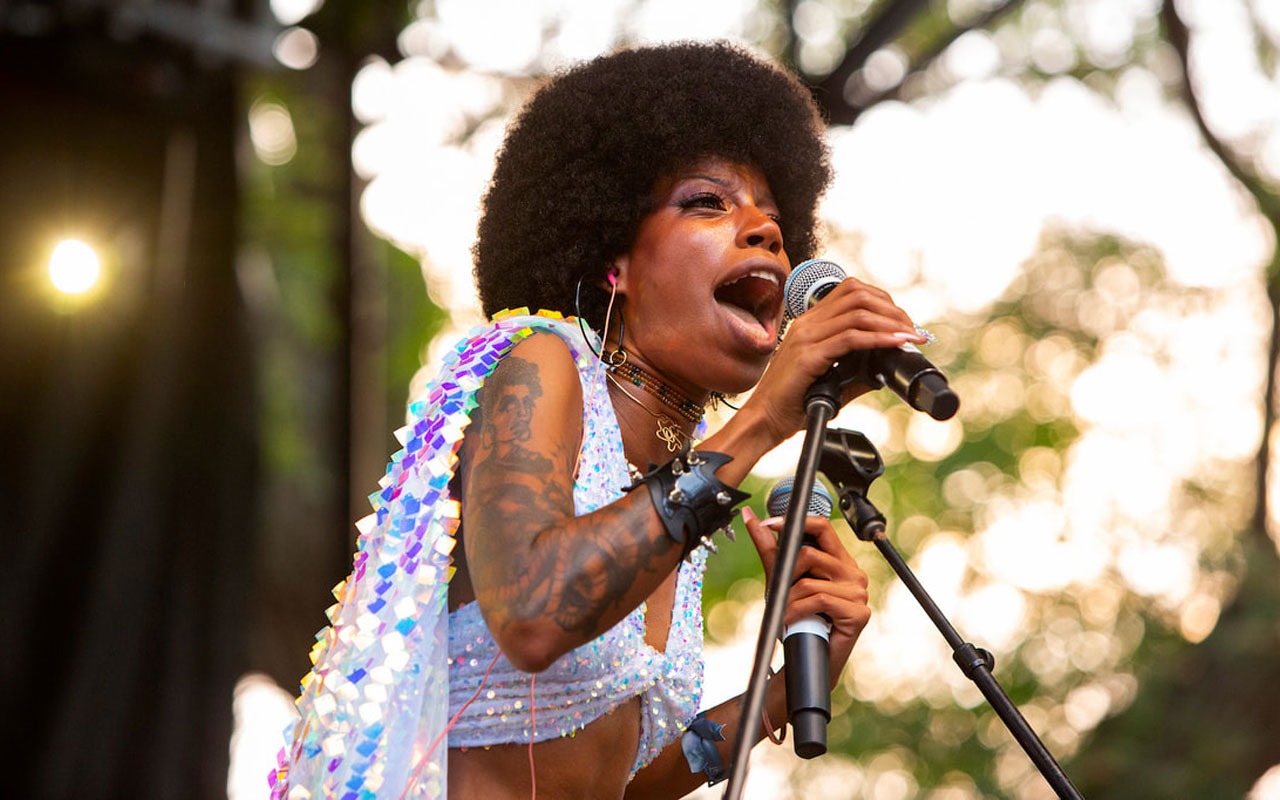
SATURDAY, OCTOBER 28, 8PM PDT LANGSTON HUGHES PERFORMING ARTS INSTITUTE
Georgia Anne Muldrow
Co-presented with LANGSTON. Welcomed by KEXP. $20-45
BY MARIANNE GONTERMAN
A marvel of genre-defying originality, Georgia Anne Muldrow has been deeply rooted in jazz throughout her life, born into the family of guitarist Ronald Muldrow (who played alongside Eddie Harris) and Rickie Byars, lead singer of Roland Hanna’s New York Jazz Quartet and the Pharoah Sanders Ensemble. The prolific songwriter, vocalist, and multi-instrumentalist paints kaleidoscopic soundscapes traversing jazz, hip-hop, funk, soul, rock, electronica and beyond. Often acting as a one-woman studio band, she composes, arranges, records and performs her music entirely on her own. She appears under several different aliases, among them Jyoti, meaning “light” or “celestial flame”, a name bestowed to her by the late great Alice Coltrane.
Much of Muldrow’s music revolves around love, spirituality, and self-actualization. “The searching for one’s inner power and one’s inner ownership and one’s language—that’s what brings this music forward.” Most importantly though, she is a strong advocate for elevating and preserving Black culture as an uncompromising voice in her fervent opposition to the enduring state of racial inequality in the United States.
Having built an impressive discography, Muldrow has collaborated with artists at the forefront of innovative music, including Jason Moran, Robert Glasper, Adrian Younge, Ambrose Akinmusire, Justin Brown, Keyon Harrold, Dev Hynes, Erykah Badu, Sa-Ra Creative Partners, Bilal, and Mos Def. Since her first full-length album 17 years ago, she has released over 20 records exploring and blending virtually every shade of Black music into her own funky psychedelic textures. Her 2018 solo album Overload earned her a 2020 Grammy nomination for Best Urban Contemporary Album.
Muldrow produced a series of instrumental releases, setting aside her extraordinary vocals to shine a light on her talents as a beatmaker. Her 2021 record VWETO III is steeped in deep and vibe-heavy hip-hop beatscapes, mostly instrumental with occasional inspired vocals from Muldrow, singer Shana Jensen, and Detroit rapper Ayun Basa. Vweto means “gravity” in Kikongo, a Congolese Bantu language. Magic emanates from gyrating reverbs, hooks and sonic explorations, vividly creating an aura, even a tactile sensation. “I was listening to an Isaac Hayes LP where even the reverb had grain and texture. I want my music to create an environment.” This concert is a unique opportunity to experience Muldrow’s multilayered sonic journeys through ever-changing and surprising dimensions.
Prior to the evening’s performance, Muldrow will lead an afternoon workshop (included with ticket). Students and young artists are especially invited to participate.
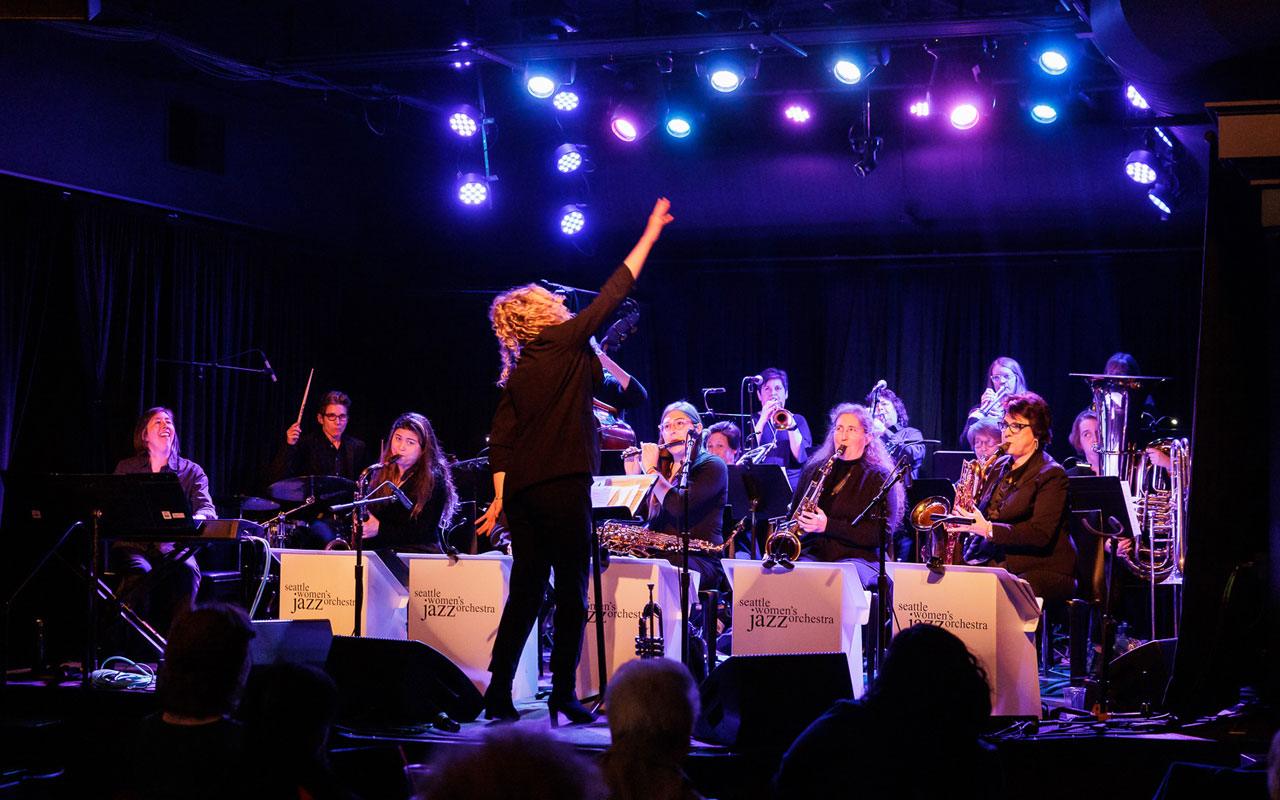
SUNDAY, OCTOBER 29, 2PM PDT IKEA PERFORMING ARTS CENTER
Seattle Women’s Jazz Orchestra feat. Marina Albero
Presented by Seattle Women’s Jazz Orchestra. $18-25
BY ERIC OLSON
“Middle school is where we most often see girls fall off the musical track,” says Marge Rosen, executive director and trumpet player with the Seattle Women’s Jazz Orchestra. SWOJO, for short. With their middle and high school jazz workshops, annual composition contests, and regular gigs around Western Washington, 16-member big band SWOJO aims to remedy jazz’s notable gender disparity. And to sound good doing it.
“The jazz scene is still a male-dominated environment,” says pianist Marina Albero, set to perform with the group at the Renton IKEA Performing Arts Center (note: the venue is located within Renton High School). “So projects like SWOJO are needed to counterbalance the lack of female composers and players.”
Among Albero’s many bona fides are Earshot Golden Ear Awards for both the 2022 Instrumentalist of the Year and Performance of the Year. In a field crowded with male players, she’s a deserving SWOJO sit-in. “It’s an honor being featured in a concert that can inspire future generations of female artists.”
SWOJO drummer and guest musical director Taryn Zickefoose agrees. “I’ve really enjoyed playing in an all-women’s jazz ensemble like SWOJO,” she says. “The vibe is relaxed and respectful. The music expectation is high and the values of the group stay central to what we do.” In addition to performing with notable Northwest-based groups such as SWOJO, The Jazz Conspiracy All-Teacher Jazz Band, and Blue Street Voices and being an active clinician around the Pacific Northwest, Zickafoose runs a private percussion and piano studio in Marysville.
Pulling from a “deep reserve of standards” (per Rosen) SWOJO also plays originals by band members and female PNW composers. Musical directors have arranged a hefty chunk of the American jazz songbook over the band’s 23 years. This will be SWOJO’s first Earshot Festival performance since the pandemic and this year’s performance is centered on celebrating women in jazz. Rosen says the group is particularly excited to reach young jazz artists in South Seattle – a student under 18 is free with the purchase of an adult ticket.“To women playing in the PNW,” says Zickefoose, “keep doing what you love and continue to push yourself to enter into new playing situations, even if they are uncomfortable. Take it on. Represent. Keep it about the music making.”
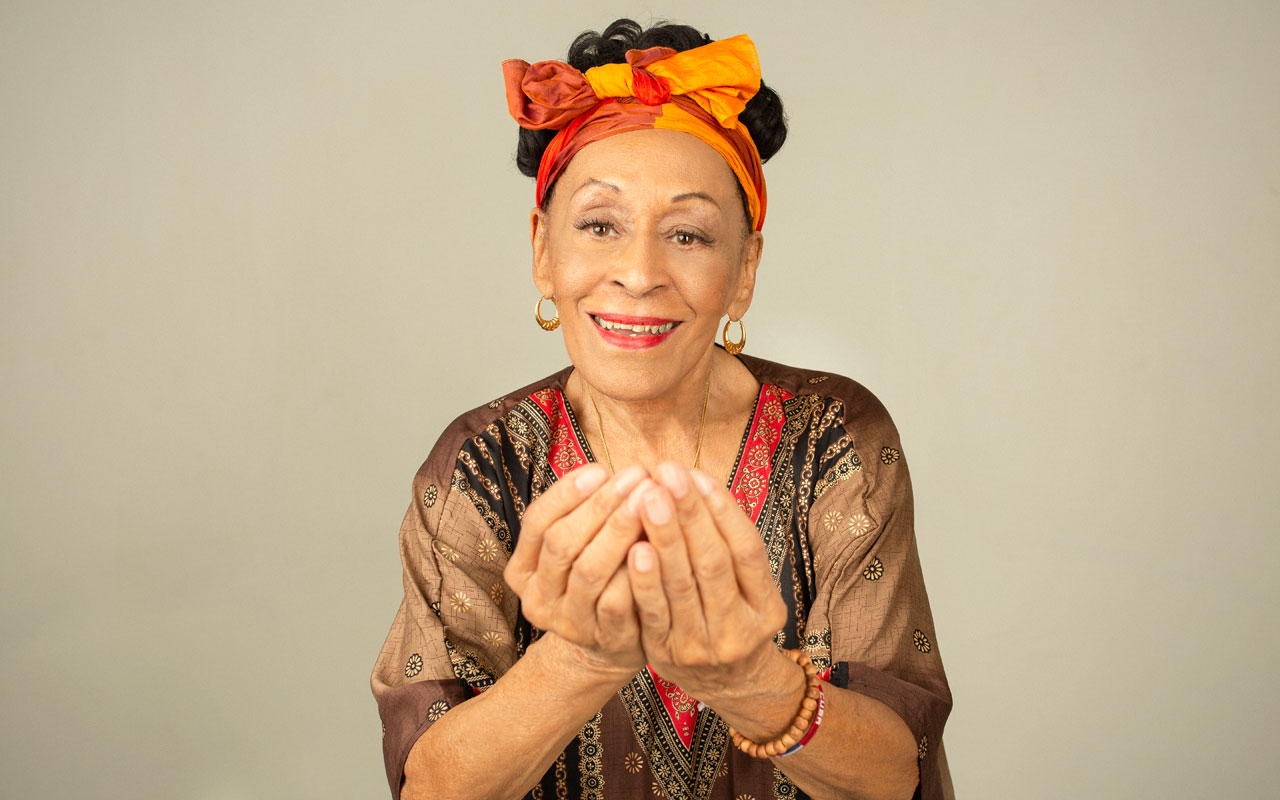
SUNDAY, OCTOBER 29, 7:30PM PDT TOWN HALL GREAT HALL
Omara Portuondo
Sponsored by Seattle Sacred Music & Arts. Welcomed by KNKX. $12-65
BY ARMANDO FLEURY
The great Cuban singer Omara Portuondo, known the world over as a member of the Buena Vista Social Club phenomenon that lit a fire under Cuban music in 1996, will be celebrating her 93rd birthday in Seattle’s Town Hall, a stop on her Farewell Tour.
Born in Havana, Portuondo began dancing at Havana’s fabled cabaret, the Tropicana, at 15, where she still performs. Early on, she created a new sound with Frank Emilio’s band, dubbed “fillin” (“feeling”), for its emotional punch. Working with everyone from Édith Piaf to the great Cuban band leader Benny Moré, Portuondo toured the U.S. before the 1959 Cuban Revolution and in 1957 appeared on an album with Chico O’Farrill. Her own debut album, Magia Negra, came out the following year. She went to work with Los Van Van and others in Cuba, but the Buena Vista project brought her worldwide fame, followed by two Latin Grammy awards.
Most singers have thrown in the towel long before their 90s, but if her most recent recording, Vida, is any indication, Portuondo is still in good voice—a little worn at the edges, perhaps, but deeply resonant and as fragrant as a rose. The disc covers an array of music and styles, including the boleros—intense torch songs—she is famous for, as well as big band jazz and Son Cubano. The boleros are a highlight, including two associated with the late, great Argentinian singer, Mercedes Sosa, “Gracias A La Vida” and “Como La Cigarra.” The latter, by the way, has nothing to do with Cuban cigars, but refers to the curious rebirth of cicadas, written into the song as a metaphor for undying love but later taken as a symbol of Argentina’s politically “disappeared” (see Joan Baez, among others). The gorgeously flowing “Bolero A La Vida” features the album’s producer, Guatemalan singer-songwriter Gaby Moreno, with a lovely requinto obligato sprinkled over the top. (Benaroya Hall will present Moreno on October 6.)
The album was recorded during the pandemic and partly reflects the darkness of that time, including the concurrent police violence that harassed Black Lives Matter. “Now” nods (via Lena Horne) to the activism demanded by the murder of George Floyd and is an unusual instance of Portuondo singing in English. “Silencio” (“Be quiet / I don’t want the flowers to know I’m sad”) and “Duele” (“It hurts”) are just plain sad.
But Portuondo’s show is bound to give a lift, no matter what she’s singing. Those lucky enough to have seen her in Seattle back in 2000, with fellow Buena Vista members Ibrahim Ferrer and Rubén González, will recall how she and her compadres transformed the Showbox into a Havana nightclub – erotic and playful, dreamlike, and hypnotic. Portuondo has been back to Seattle a few times since, but this is her first appearance here since 2018.
